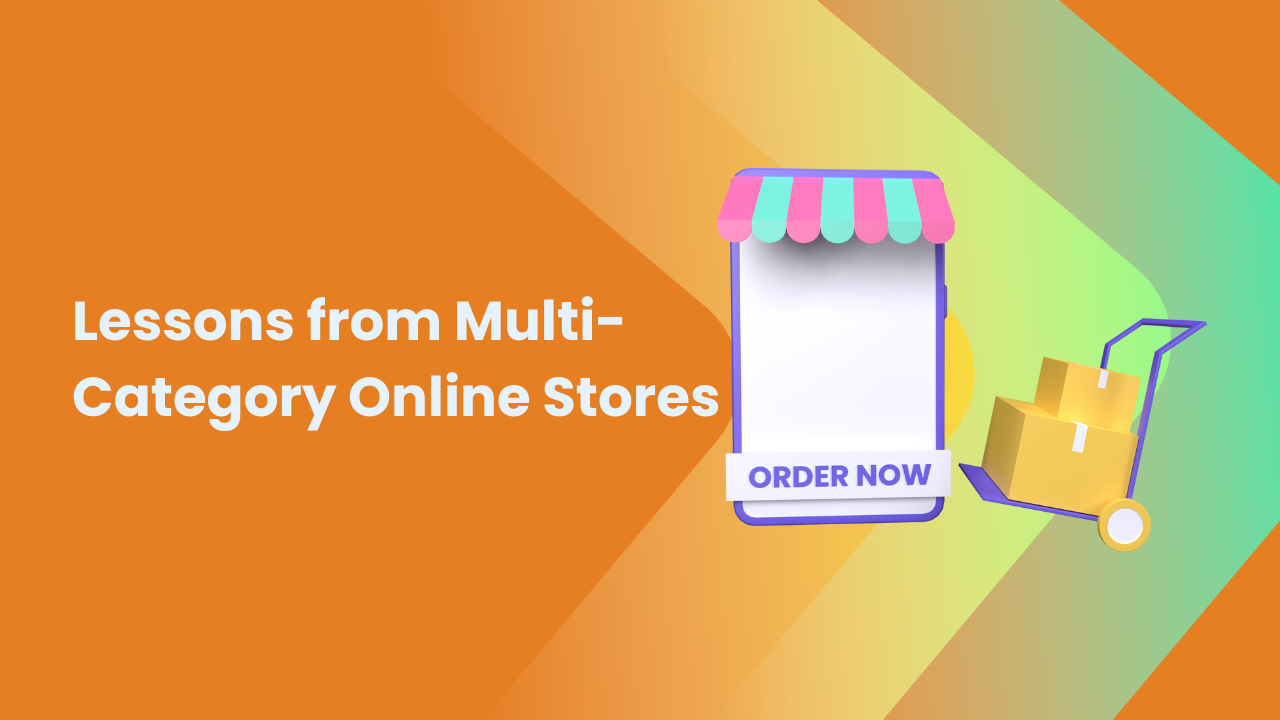Share this Article
In the ever-growing digital marketplace of Nepal, Direct-to-Consumer (D2C) brands are continually finding ways to engage with their customers and build strong reputations. One of the most effective tools in achieving this goal is customer reviews and feedback. As consumer expectations continue to rise, it has become clear that gathering and responding to customer feedback is no longer a luxury but a necessity. For D2C brands operating in Nepal, customer reviews serve as one of the most reliable indicators of product success, customer satisfaction, and overall brand trustworthiness. This blog explores the evolving role of customer reviews and feedback in shaping the D2C landscape in Nepal.
1. The Surge in the Importance of Customer Reviews in Nepal
In recent years, as internet penetration and mobile usage have surged across Nepal, the e-commerce sector has witnessed exponential growth. With the rise of digital platforms, more Nepali consumers are now turning to online marketplaces and shopping apps for their everyday needs. A major byproduct of this shift to digital platforms has been the growing reliance on customer reviews and feedback to guide purchasing decisions.
For most consumers in Nepal, purchasing products or services online means they cannot physically inspect the items before buying them. This makes customer reviews a crucial part of the decision-making process. They provide essential social proof for customers, offering a glimpse into the experiences of other users. As a result, D2C brands in Nepal are increasingly recognizing the power of these reviews in shaping their business strategies. The importance of customer reviews has gone beyond just feedback—it's a pivotal marketing tool and a direct line to understanding consumer needs.
2. Establishing Trust and Credibility Through Reviews
Trust is one of the most significant factors that influence consumer behavior, particularly in the context of online shopping. For many customers in Nepal, buying from a brand they have never interacted with or a product they have never physically seen can feel risky. This is where customer reviews play a vital role. Positive feedback from other customers creates a sense of credibility and trustworthiness for a brand. It provides a reassurance to potential buyers that they are making a sound investment.
The relationship between consumer trust and reviews is particularly vital for D2C brands in Nepal, which often have less brand recognition compared to established companies. Consumers are more likely to purchase from a brand that has accumulated positive reviews, knowing that other buyers have had favorable experiences. A D2C brand that is transparent and actively engages with its customers—addressing concerns or acknowledging positive feedback—demonstrates reliability and fosters trust in the eyes of its customers.
3. How Customer Reviews Serve as Social Proof
The concept of social proof refers to the psychological tendency of individuals to follow the actions and decisions of others, especially in situations where they are uncertain. Customer reviews provide this social proof, influencing others to take similar actions based on the experiences of previous customers. In Nepal, where personal recommendations and word-of-mouth are still heavily relied upon, social proof through reviews can significantly affect a potential customer’s decision to purchase.
D2C brands in Nepal understand the importance of social proof and leverage it to gain the trust of new customers. For example, when a new customer sees that a product has received numerous positive reviews, they are more likely to feel confident about making the purchase. D2C brands are increasingly using customer testimonials, feedback, and user-generated content (such as photos or videos of the product) as part of their marketing strategy, further enhancing their credibility.
Social proof can also extend to online platforms and social media. As reviews are shared on social channels, they build a sense of community around the brand, making it easier for potential customers to engage with the product and the brand itself. Social media sharing, customer posts, and reviews can act as powerful marketing tools that reach a wider audience at a minimal cost.
4. Using Reviews for Product Improvements
For D2C brands, customer reviews are not just a marketing tool—they are also an essential resource for improving products and services. Through feedback, brands gain insight into what is working and what needs to be changed. In a market like Nepal, where consumer preferences are evolving rapidly, staying attuned to customer reviews allows brands to stay competitive and responsive.
Customer feedback often provides details on specific features of a product, such as functionality, design, and performance. If a recurring theme emerges from reviews—such as a design flaw or an issue with usability—the brand can prioritize making improvements. In some cases, a brand may need to reevaluate the quality of its customer service or adjust its product offerings to better meet consumer expectations.
D2C brands that embrace customer feedback and use it as a tool for continuous improvement can create more user-friendly products, address pain points, and develop stronger customer relationships. Additionally, responding to feedback and taking steps to address issues demonstrates that the brand values its customers and is committed to providing the best possible experience.
5. Strengthening Customer Loyalty and Retention
Customer reviews and feedback have an undeniable impact on building customer loyalty and retention. When a D2C brand in Nepal takes the time to listen to customer reviews and addresses concerns or queries, it shows customers that their opinions matter. This fosters a sense of belonging and strengthens the connection between the brand and its customers.
Brands that engage with their customers in a meaningful way, responding to their feedback, and showing appreciation for positive reviews, tend to foster long-term loyalty. Loyal customers are more likely to return for repeat purchases, recommend the brand to others, and advocate for the company in social spaces.
In a competitive e-commerce market, customer loyalty can make a significant difference. D2C brands that show genuine care and dedication to their customers will not only see growth in repeat business but also benefit from word-of-mouth recommendations and organic growth.
6. Leveraging User-Generated Content for Marketing
User-generated content (UGC) plays a pivotal role in modern marketing, particularly in Nepal's growing e-commerce industry. Customer reviews and feedback are key components of UGC, and D2C brands can harness them to fuel their marketing strategies. UGC, whether in the form of product reviews, customer testimonials, or social media posts, is highly valuable for building brand credibility and authenticity.
For Nepali D2C brands, featuring user-generated content on websites, social media pages, and advertisements can be an effective way to attract new customers. Potential buyers tend to trust real experiences from other customers more than branded marketing content. Positive reviews, images of satisfied customers using the product, or video testimonials can act as persuasive tools that encourage potential buyers to take the plunge and make a purchase.
Additionally, offering incentives such as discounts or loyalty points in exchange for reviews can further boost the amount of UGC generated, creating a cycle of engagement that benefits both the brand and the customer.
7. Managing Reputation and Crisis Communication
While positive reviews can enhance a brand’s reputation, negative reviews have the potential to harm a brand’s image. This is particularly true for D2C brands in Nepal, where competition is fierce, and online perceptions can significantly impact consumer trust. Therefore, managing reputation and responding to negative feedback is crucial to maintaining a positive image.
When D2C brands receive negative reviews, it’s important that they respond promptly and professionally. A well-crafted response that acknowledges the issue, offers an apology, and provides a solution can turn a dissatisfied customer into a loyal one. This level of transparency and customer service can actually improve a brand’s reputation, showing prospective customers that the company values feedback and is committed to making improvements.
Effective crisis communication is another vital aspect of reputation management. Whether it's an isolated customer complaint or a more widespread issue, how a brand responds publicly to these situations can make a big difference. By being open, accountable, and responsive, D2C brands can prevent negative feedback from escalating and damaging their reputation.
8. Encouraging Customer Advocacy and Engagement
One of the key benefits of customer reviews and feedback is that they can be a driving force behind customer advocacy. A satisfied customer who has left a positive review is not just offering their opinion—they are advocating for the brand. D2C brands in Nepal can encourage this type of advocacy by engaging with customers and recognizing their contributions, whether by thanking them for positive feedback or featuring their reviews on social media.
Furthermore, brands can incentivize customer advocacy by offering referral programs or loyalty rewards. When customers feel appreciated and rewarded for sharing their experiences with others, they are more likely to promote the brand to their social circles. This organic, peer-driven growth can be particularly powerful in Nepal, where personal recommendations carry significant weight in consumer purchasing decisions.
Conclusion
In Nepal’s growing D2C landscape, customer reviews and feedback are essential components of a successful business strategy. They build trust, provide insights for product improvements, foster customer loyalty, and enable brands to effectively manage their reputations. D2C brands that recognize the power of customer reviews and actively engage with their consumers will not only see improved customer satisfaction but will also be better positioned for long-term success in the competitive Nepali market.
In an era where consumers demand transparency, authenticity, and a personalized experience, D2C brands in Nepal must prioritize customer feedback as a core part of their business strategy. By listening to their customers, responding to their needs, and continually refining their offerings based on feedback, brands can cultivate a loyal customer base and thrive in an increasingly digital world.
Categories:
E-commerce Tips & Tutorials
,
Marketing & Growth
,
SEO & Content Marketing
,
Beginner’s Guides
,
Sales & Conversion
,
Success Stories & Case Studies
,
Platform Features & Updates
,
Platform Comparisons
,
Design & UX Best Practices
Tags:
Online Store in Nepal
,
5 Simple Steps
,
local businesses
,
e-commerce app
,
Small Business
,
strong brand
,
E-commerce
,
Role of Social Media
,
Growing sales
,
strategies
,
Social media
,
Logistics
,
Delivery Networks
,
Flexible Delivery
,
Mobile Platforms
,
Web
,
SEO
,
search engine optimization
,
Global E-commerce
,
Nepali businesses
,
reviews and ratings
,
Dropshipping
,
picture
,
Photography
,
Fraud prevention
,
E-commerce fraud
,
Influencer marketing
,
Boost
,
festival season
,
Top Mistakes
,
key trends
,
e-commerce landscape.
,
Building trust
,
Nepali e-commerce market
,
Starting an online store
,
launch
,
Email Marketing
,
Email List
,
Handling returns and refunds
,
Cash on Delivery vs. Online Pa
,
(COD) vs Online Payment
,
Cash on Delivery
,
Pricing
,
cost of goods sold (COGS)
,
DigitalNepal
,
NepaliEntrepreneurs
,
GrowOnlineNepal
,
RetailRevolution
,
ShopOnlineNepal
,
FutureOfRetail
,
NepalEcommerce
,
NepalTaxTips
,
EcommerceNepal
,
BusinessTaxesNepal
,
DigitalBusinessNepal
,
SellSmartNepal
,
ProductDescriptionTips
,
BoostSalesNepal
,
OnlineSellingNepal
,
DataProtectionNepal
,
PrivacyMatters
,
SecureEcommerce
,
ContentMarketingNepal
,
BloggingForBusiness
,
ContentMarketing
,
BloggingNepal
,
MarketingThroughBlogs
,
BloggingTipsForBeginners
,
ProductPhotography
,
EcommercePhotography
,
CreativeProductPhotos
,
Quality Product
,
ClientRetention
,
NepaliShoppers
,
CustomerConnection
,
RelationshipMarketing
,
NepaliProducts
,
NepalSale
,
NepaliDiscounts
,
NepalAIRevolution
,
TechInNepal
,
AIForBusinessNepal
,
AIforCustomerServiceNepal
,
NepalBusiness
,
StartupNepal
,
Ecommerce2025
,
ChooseRightPlatform
,
UXDesignNepal
,
ImproveUX
,
UXTips2025
,
WebsiteDesignNepal
,
erce Ecosystem":
,
CustomerRetention
,
SubscriptionModel
,
ScaleYourBusiness
,
PluginsForEcommerce
,
EcommerceTrends2025
,
BusinessGrowthNepal
,
Gamification







